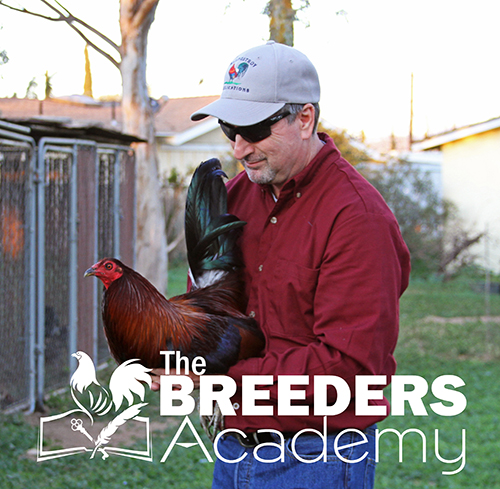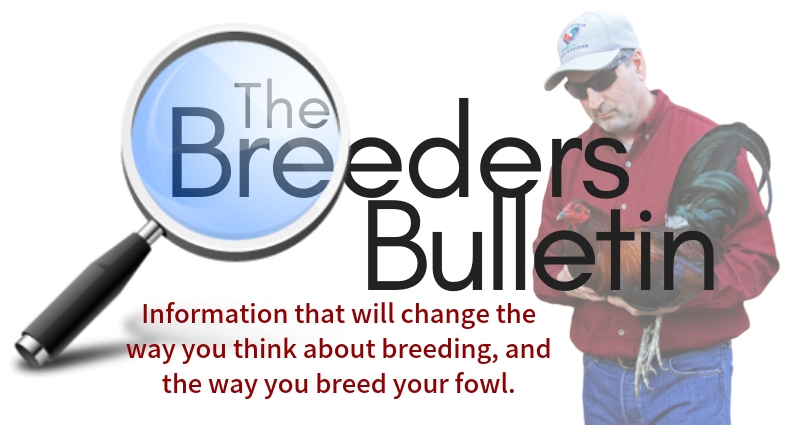
Whenever I get a call, from a reader, or a listener of our show, Bred to Perfection, who wants to talk with me about a bird(s) they purchased, from a specific breeder, their usual complaint is about a flaw or imperfection that they found. In most cases the flaw or imperfection is small or insignificant.
Although I don’t want to seem nonchalant or insensitive about your concerns, you must understand that no bird is perfect. Flaws and imperfections are things to be guarded against, but are found in all birds to some extent. In fact, it is quite normal to see a slight flaw or two when purchasing birds.
A bird, which is good overall, but may have one or more slight flaws or imperfections, which are not genetic defects or breed disqualifications, is a good bird and usually worth the money you paid for it.
Another complaint I get, usually from beginners, is that the birds they purchased show or develop a few off-colored feathers, and believe this indicates an impurity of blood. Such is not the case, for off-colored feathers are not uncommon in many varieties. For example, the black feathers in the Barred Plymouth Rock. Such off-colored feathers are not seen in the specimens exhibited at the shows, simply because they are pulled out, but their presence does not indicate an impurity of blood.
Also, in 5-6 week old chicks, before they get their mature plumage, there may be evidence of foreign plumage color, usually in the wings and tail. This is often mistaken for evidence of impurity. With the growth of the mature plumage, however, this foreign color is usually lost, completely. An example of this is the white, which commonly occurs in the wings of juvenile chicks of black varieties, but usually disappears from the adult plumage.
Defects are more serious: Defects are inherited from mother and father, and are passed down generation to generation. It is a weakness that can destroy the strain, and should be avoided at all cost.
Do not purchase or accept birds showing defects: Most defective traits are genetically recessive. When a recessive trait is matched with the same recessive trait, from its mate, that trait will be perpetuated in their offspring. And if not culled will, in time, be passed down to the next generation.
Once a defective trait is established in a family or strain, it is very difficult to eliminate it. Many believe that with proper selective breeding practices, and persistent culling of all defective birds, these traits will no longer be expressed. But in truth, this is only an illusion. Recessive traits are never eliminated, entirely, only hidden, only to arise later down the road. As soon as they are mated, with another bird, carrying the same recessive trait, even when not expressed, the trait will be expressed in the offspring.
Poor health is even more detrimental to a family or strain: Genetic defects are destructive to the future of a strain, to be sure, but it is very difficult to produce healthy offspring from unhealthy parents. Therefore, purchasing broodfowl that are in good health should be your first priority.
If the fowl you are purchasing show illness or a lack of vigor and vitality, in any way, don’t buy them. In fact, don’t buy anything from that breeder. If you see even one sick or questionable bird, it is time to leave. Go straight home, wash your clothes, scrub your shoes, and shower right away.
Many things, such as exposure to disease, improper nutrition, and stress, can cause poor health. Stress is a powerful force that weakens the immune system. But it can also be a genetic weakness, inherited from its ancestors.
No matter the cause, the results are the same, substandard brood fowl. Breeders who raise fowl, such as these, usually have pitiable farm management practices, or they are beginners that simply lack the experience to breed and raise strong, healthy, genetically superior fowl.
Take your time and find fowl that are free of defects, and are of good health. The last thing you want to do is start with brood fowl that lack a strong, healthy constitution.
Select brood fowl that have good constitutional vigor, and have a good genetic resistance to disease.

